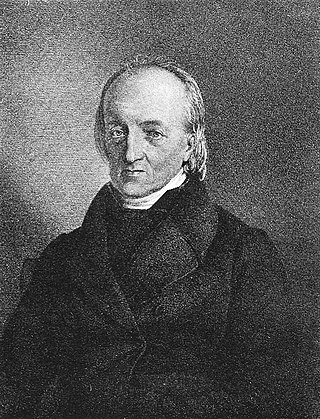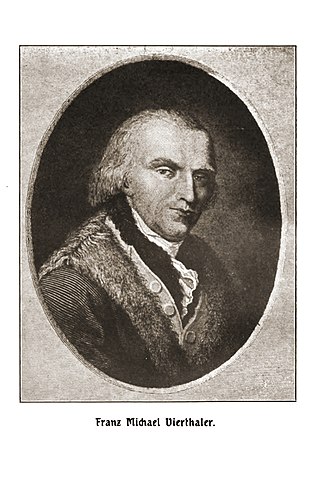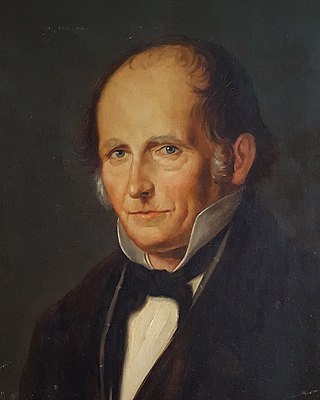
Philipp Emanuel von Fellenberg was a Swiss educationalist and agronomist.

Jean-Pol Martin studied teacher education for foreign language teachers in Germany, and developed a teaching method called learning by teaching. He spent most of his career at Catholic University of Eichstätt-Ingolstadt and was a Professor there when he retired in 2008.

Albert Stöckl was a German neo-scholastic philosopher and theologian.
Karl Mager was a German educator.

Franz Michael Vierthaler was a distinguished Austrian pedagogue.
Otto Friedrich Bollnow was a German philosopher and teacher.

Friedrich Adolph Wilhelm Diesterweg was a German educator, thinker, and progressive liberal politician, who campaigned for the secularization of schools. He is said to be precursory to the reform of pedagogy. Diesterweg is considered as "a teacher of teachers".
Erna Barschak was a German teacher of vocational education studies and a psychologist. One of her important works is an autobiography about her emigration from Nazi Germany to the US.

Friedrich Dittes was a German-Austrian educator, known for his reform efforts within the Austrian school system.
Rankenheim is a mansion on Zemminsee in Groß Köris, Brandenburg, approx. 50 kilometres south of Berlin. In Nazi Germany it was used as a camp for educating teachers. After 1945 it became a temporary hospital and eventually a place for "maladjusted children" during the GDR regime - it is now a youth village. The surrounding district of Groß Köris is called Rankenheim.
Heinrich Georg Leonhard Schotten was a German mathematician and mathematical pedagogue, known for his work on reforms in the teaching of geometry.
Hans-Georg Herrlitz is a German educator.
Karl Friedrich Wilhelm Wander was a German pedagogue and Germanist. He published the largest existing collection of German-language proverbs.
Theodor Litt was a German culture and social philosopher as well as a pedagogue.

Wilfried Gruhn is a German violinist, musicologist, music educator, and professor emeritus at universities in Germany and abroad. His focus is the music education of small children. He founded and directed the Gordon Institute of early childhood music learning in Freiburg in 2003. He is engaged in several international organisations such as International Society for Music Education (ISME) and the Internationale Leo Kestenberg Gesellschaft which published Leo Kestenberg's complete writings in six volumes.

Psychologie und Schule is a German book published in 1920 by the German author Otto Lipmann. It was published by the Julius Beltz publishing company and is book 47 of the series Aktuelle Fragen aus der Pädagogik der Gegenwart, issued by Max Reiniger. The book discusses the field of use of psychology in the school environment. By writing it Lipmann wanted to teach the readers about the development of modern psychology in 1920 and its relation to pedagogy. It incorporates topics with regard to education that are also dealt with in the 21st century and gives insights into the progress made in the 20th century.

Betty Gleim, also called as Ilsabetha Gleim, was a German teacher, school founder and author. She founded schools for girls and advocated the importance of practical education for a woman's independent life.
Wilhelm August Lay was a German educator and psychologist who is considered one of the founders of experimental pedagogy. He is best known for his work on developing a scientific approach to education, based on empirical research and observation.

Johann Hugo Wyttenbach was a German librarian, historian and school master.
Karl Volkmar Stoy was a German educator and pedagogue, a representative of Herbartian pedagogy.









